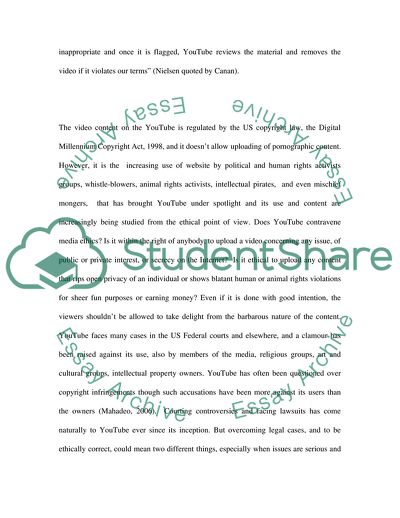Cite this document
(YouTube and Ethical Issues Essay Example | Topics and Well Written Essays - 2000 words, n.d.)
YouTube and Ethical Issues Essay Example | Topics and Well Written Essays - 2000 words. https://studentshare.org/ethics/1711201-youtube
YouTube and Ethical Issues Essay Example | Topics and Well Written Essays - 2000 words. https://studentshare.org/ethics/1711201-youtube
(YouTube and Ethical Issues Essay Example | Topics and Well Written Essays - 2000 Words)
YouTube and Ethical Issues Essay Example | Topics and Well Written Essays - 2000 Words. https://studentshare.org/ethics/1711201-youtube.
YouTube and Ethical Issues Essay Example | Topics and Well Written Essays - 2000 Words. https://studentshare.org/ethics/1711201-youtube.
“YouTube and Ethical Issues Essay Example | Topics and Well Written Essays - 2000 Words”. https://studentshare.org/ethics/1711201-youtube.


